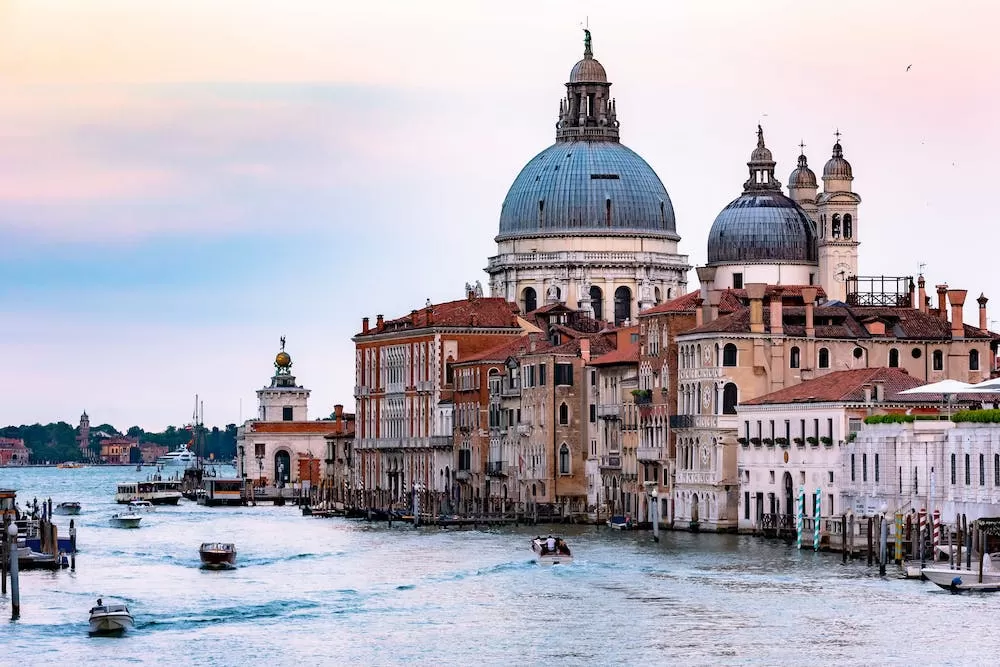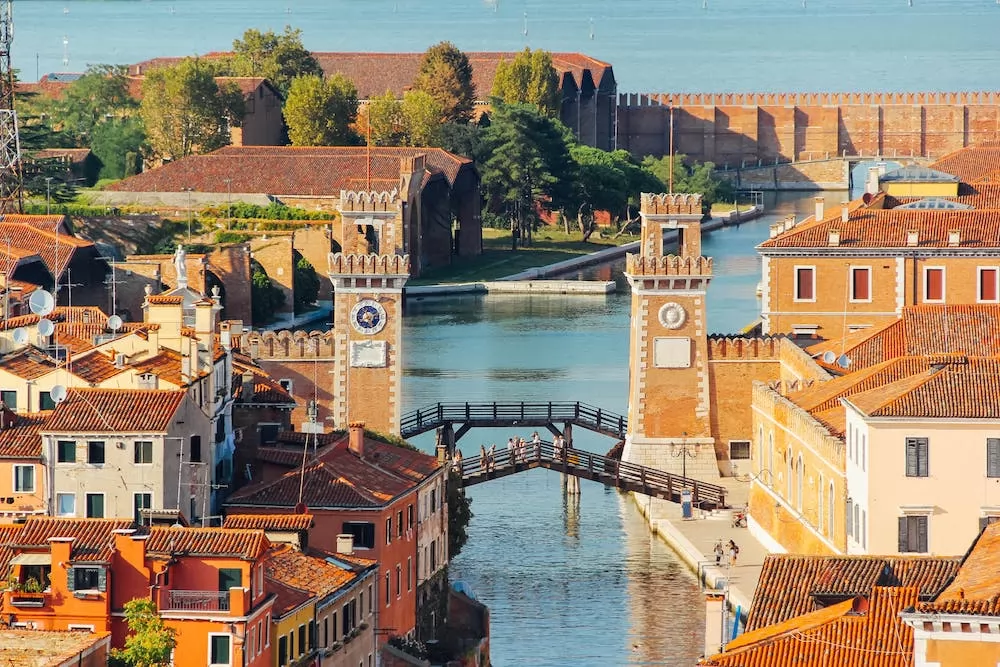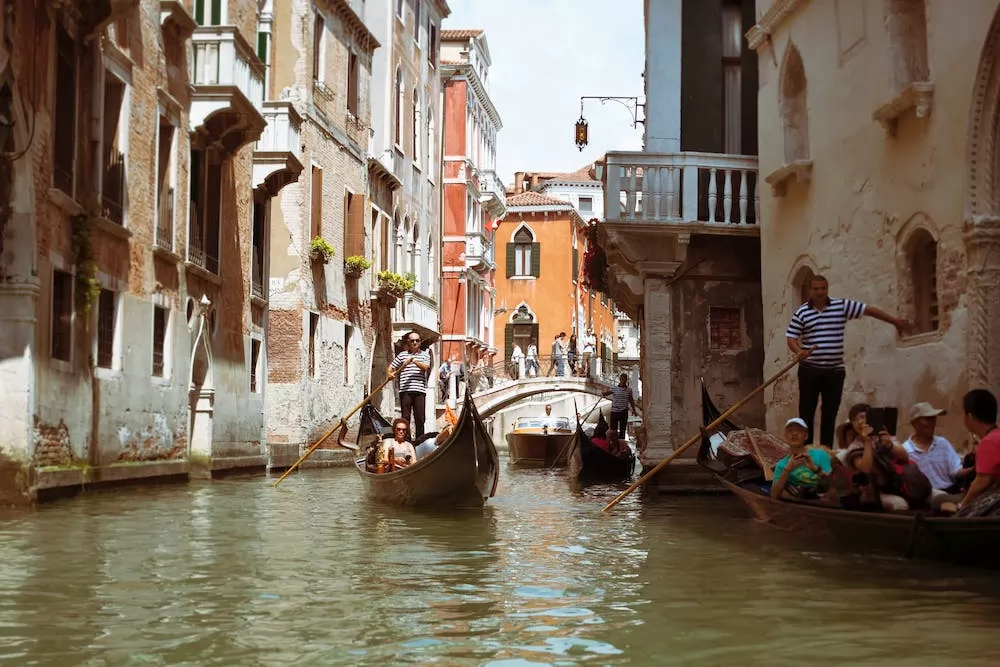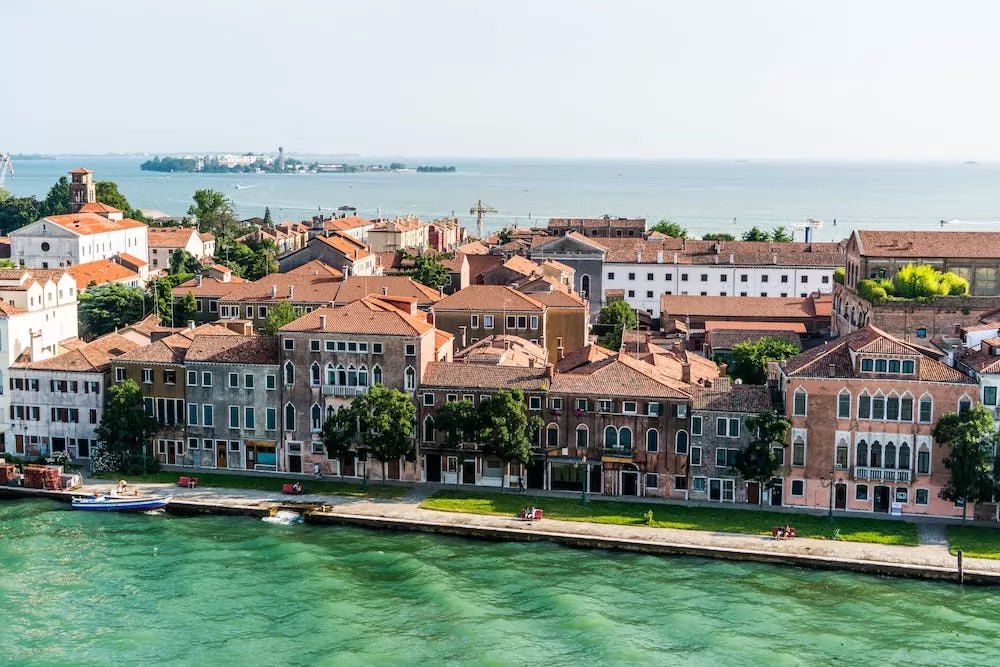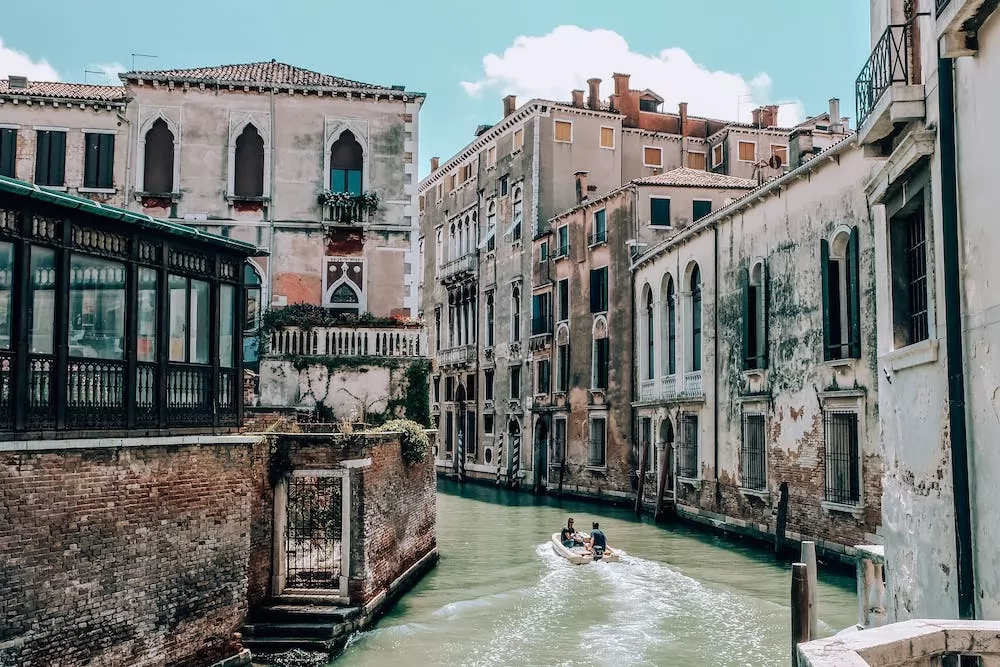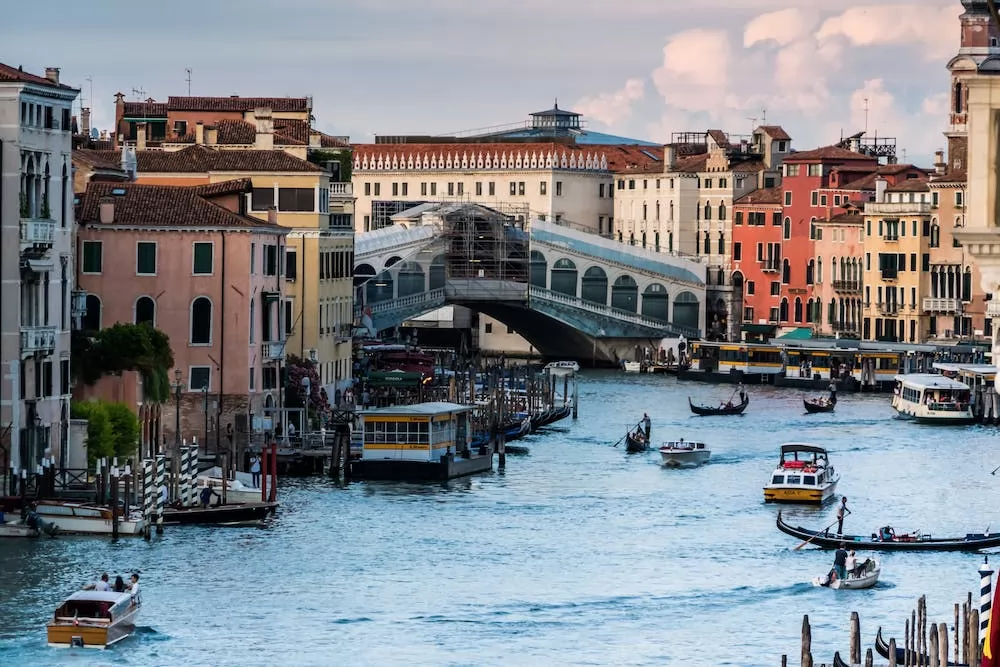When it comes to picturesque cities with their unique charms,
Venice is a cut above the rest. A rustic yet romantic oasis of classic Gothic architecture, serenely offset by the calm canals, and with an enticing subculture to boot, it almost seems like the city is in a world of its own. It makes you feel like visiting here isn't enough! You'd want to live here, immerse yourself in local life, and become a true-blue Venetian. Well, if you do have such plans, know that moving here isn't easy peasy but it's not impossible either! This relocation guide will tell you what you need to know.
Can I Move to Venice?
It depends on your reason for moving to Venice. Typically, it's because of work or school. It's fairly common for new residents to have moved to Venice because their jobs relocated them there. At the same time, it's not unusual to study in the city's many international schools. You can study here at first and if you find work in Venice afterward, it's your pathway to becoming a local.
Is it Expensive to Live in Venice, Italy?
Yes, it is. Venice is notoriously one of the more expensive cities in Italy. The city is already expensive for tourists visiting for a couple of days/weeks, what more if you're relocating here?
How to Move to Venice, Italy
In terms of moving to Venice, you only really need to do two things:
- Get a long-term visa (EU citizens only need to register in the Venice City Hall)
- Find accommodations
Other steps are just as important, but as long as you're done with these two, you're technically living in the city already.
Overview of Venice
Venice serves as the capital city of Italy's Veneto region. Taking up 126 islands and islets, it's one of the biggest and most famous cities in the country. Despite its worldwide fame, however, Venice only has a current population of 642,000 residents. Weather-wise, the city is known for its generally warm climate. Its hottest month is July, which has an average temperature of around 23°C (73°F). Venice's coldest month is January, which has an average temperature of 3°C (37°F). It rarely snows in Venice during winter, but the canals do freeze up now and then.
What Venice is Famous For?
Venice is best known as the “City of Canals” in Italy. Though there are many other cities with canals, this Italian metropolis trumps all of them. It's mostly how the grand architecture of the city makes the canals look and feel more serene and almost intimate. As you
ride a gondola on the canals, you can't help but feel the romance and old-world glamour of the city. None of the other canal-filled cities have this sort of enigmatic appeal.
What to Do in Venice
Even if you only have
one day in Venice, there's already a lot you can do! Sightseeing ought to be number one in your itinerary. The city is a treasure trove of amazing sights, ranging from Piazza San Marco and its grand church to the iconic Rialto Bridge or romantic Bridge of Sighs. Riding a gondola is an absolute must too! Even when you become a local, this never gets old. Neither does seeing the glassworks on Murano Island. Their colorful and intricate glassware is the pride of Venice's craftsmanship.
Source: Wikimedia Commons
Visa for Venice
Handling your documents is the first thing you need to do when moving to Venice. Typically, this means your
Schengen Visa, which allows entry to those coming from non-EU/EEA countries. This is only for tourists, however, and there are different long-term visas that you'd need to get instead when you relocate to Venice. Firstly, if you're moving because of work, you either need a
Distacco visa (good for only two to three years; granted to workers hired by non-Italian companies) or
Quota visa (granted to workers hired by Italian companies).
EU citizens may not need a visa to get to Venice, but they still need to register at City Hall to relocate here.
Do I Need a Visa for Italy?
If you're coming from a non-EU/EEA country, then yes, you need a visa just to get to Italy. Unless you might be coming from a country that's eligible for the
ETIAS Visa Waiver Program instead. Just as its name says, this program allows citizens from selected countries entry into Italy and other territories within the EU/EEA region. These include the US, the UK, the UAE, Australia, Canada, Japan, Singapore, and more. With all that said, moving to Venice will require a long-term visa, even for those eligible for the program.
Source: Wikimedia Commons
Getting Around Venice
You'd be surprised at how efficient
Venice's public transport truly is. Sure, the canals may make it harder for anyone to get around here, but that doesn't make commuting impossible. There may not be cars in Venice (driving is not allowed in the city), but you don't need them. For one thing, the city's
Vaporettos (public water buses) allow for anyone to get to where they need to be. The gondolas are available too, even though they mostly target tourists. And if you want to stay on land, you can always rent a bike.
How to Get Around Venice
You mainly have two options: travel via the water or ride/rent a bike. The Vaporetto is the main mode of public transportation in Venice, allowing you to get to different districts and islands within the city. You can also ride a gondola, but they're mostly targeted towards tourists. They rarely travel to the least touristy parts of Venice. And if you want to stay on land, you can either go for a bike or walk.
Can You Walk Around Venice?
Yes, you can. You're encouraged to walk in Venice, especially if you want to avoid traveling through the water buses or gondolas. Driving is prohibited within Venice, so you won't find any taxis or rental cars here. None of the popular
transportation apps operate here too, which further leaves you no choice but to walk.
Source: Wikimedia Commons
Where to Live in Venice
Before you even start packing your bags to move here, you need to know which
neighborhood in Venice you plan on calling your new home. While most of the areas in Venice may seem like they'd be great for your new address, what type of place you're looking for matters the most. If you're keen on living a quiet life in Venice, neighborhoods like Dorsoduro, Lido, and Santa Croce will work just fine! And if you prefer to live within the hustle and bustle of Venice, you're better off settling down in San Marco or San Polo!
Where to Stay in Venice
Castello, Cannaregio, Dorsoduro, and San Marco are some of the best neighborhoods to stay in Venice. Not only are these the central districts and popular areas, but they're also among the safest parts of the city. They're also pretty different from each other, but what's similar about all of them is that they're all fun and exciting neighborhoods.
Where to Stay in Venice with Family
If you're relocating to Venice with your family, consider moving to Mestre, Cannaregio, and Dorsoduro. Mestre, for example, is a relatively peaceful district that's near the city center. Cannaregio, on the other hand, is practically built for families. From the quaint residences to the wide safe streets, you couldn't have picked a better place for your little ones. Though Dorsoduro begs to disagree. This is a residential neighborhood that's the closest thing Venice has to a suburb.
Where to Stay in Venice on a Budget
Weirdly enough, the tourist-friendly neighborhoods of San Marco, Castello, Cannaregio, and Santa Croce are also the best places for anyone on a budget. It's because they're popular tourist areas that the prices here tend to be lower compared to other parts of the city.
Source: Wikimedia Commons
Living Costs in Venice
Since Venice is one of the most famous cities, not just in Italy, but around the world, you'd expect it to be expensive, right? The truth is the
living costs in Venice are high. They're not exactly the highest, but they're high in the grand scheme of things. From food costs to monthly rent, there's a lot you need to pay for when you move to Venice. Just buying property in Venice, for example, will cost you a minimum of €2,500.00 to a maximum of €7,000.00 per square meter. That's how expensive it is to live in Venice.
Is it Expensive to Live in Venice, Italy
Yes, it is. Let's look at the common monthly rental fees, for instance. When you
rent an apartment in Venice, it'll cost you a minimum of €500.00 to a maximum of €3,000.00 per month. It all depends on how many rooms and the location of the place you're renting.
What is The Cost of Living in Venice, Italy?
A single adult living in Venice would typically spend about €1,717.00 per month without rent. A family of four, on the other hand, would spend around €3,411.00 per month without rent. Considering that the average net salary in Venice is €1,550.00 per month, then there's no doubt that the city truly is expensive.
Source: Wikimedia Commons
Employment in Venice
With a current unemployment rate of 8.0%,
Italy's job market is fairly stable right now. It's not the strongest in Europe now, but it's stable enough that you can still find decent work here. Even the country's current employment rate is 49.16%, which means practically half of the country is working. There's no reason why you won't be able to
find a job in Italy too, even if it's in Venice. The city may not be as bustling as Rome or Milan, but there are still many job opportunities here.
Jobs in Venice
Although Italy's major business hubs are Milan and Rome, there's still a lot of work to find in Venice. In fact, it's one of the
best cities to find work in Italy. Venice heads Italy's maritime commerce, especially when it comes to transporting seafood products and sea salt. Since tourism is always high here, this industry also flourishes in the city, allowing for various job opportunities too. And of course, you can't count Venice's famous glassmaking industry too. Though it's a highly traditional field, they're not so closed off to hiring expats who truly want to get into the craft.
Source: Wikimedia Commons
Education in Venice
Moving to Venice with your entire family means having to find a new school for your kids. At the very least, you don't have to worry about the quality of education. Not only does Italy's educational system consistently rank among the highest in the world in terms of quality, but the city itself has many prominent schools. It'd be great if your children know Italian so they can enroll in the free public schools, but if not, the international schools are just as good, if not better!
Schools in Venice
Among the
best international schools in Venice include the International School of Venice and the State Art School in Venice. They both teach in English as well as Italian and boast great facilities, safe campuses, and prominent professors. There's also Ca’ Foscari University, the finest higher educational institution in Venice. It never fails to draw in students and scholars from all around the world.
Source: Wikimedia Commons
Healthcare in Venice
As far as
Italy's healthcare system goes, as long as you've become a legal resident in the country, you can access the public option here in Venice. That's the only way expats can join the system, after all. Get your paperwork done and over with so that you can get treated at the public hospitals in the city. It's also common for people to get private medical insurance on top of their public coverage. This gives them access to private hospitals and healthcare professionals, as well as better premiums. If you can afford to, you might want to go this route too!
Hospitals in Venice
Healthcare is not a problem in this city. There are many
fine hospitals in Venice, both public and private. Among the most notable is Ospedale dell’Angelo, a modern healthcare facility with state-of-the-art medical technology. It's also a huge hospital that can welcome many patients, giving you a better chance to get treated here compared to other hospitals in the city. You ought to know about Punto Primo Intervento, the premier first aid center in Venice. This is where you need to head to when you get into a medical emergency.
Source: Wikimedia Commons
Safety in Venice
Will you be safe here in Venice? The answer is yes, you will be.
Venice's crime rates aren't that high. The city's general crime rate is 29.87%, which is considered low on the scale but it's definitely not Italy's lowest. Still, it's also concerning that the city's rate of increasing crimes is 63.64%, which is considered high. This means that while Venice is generally safe now, there's no telling how the city will be in the next few years.
Is Venice Safe?
Yes, it is. Venice’s safety rate during the day is 79.78%. Pair that with the city’s low general crime rate and you have all the reason you need to not be so concerned about safety here.
Is Venice Safe at Night?
For the most part, yes, it is. Though the city’s safety rate drops to a moderate 56.51% at night, it’s still a good rate. You just need to be more careful when you go out at night in Venice.
Source: Wikimedia Commons
Taxes in Venice
One of the first things you ought to understand when you move to Venice is the
Italian tax system. Know that if you get even the tiniest detail wrong when it comes to taxes, it could spell financial or even legal troubles for you. The moment you become a resident (or a tax resident, which is when you stay in Italy for about 183 days per year), you'll automatically be required to pay taxes.
Venice Tax Rate
The tax rates in Venice follow those set by the Italian government. Your income tax rate, for example, ranges from 23% to 43%. The lower your annual salary, the lower your tax rate. At the same time, most employed workers pay 10% for their social security contributions too, while the self-employed contribute about 24%. As for the VAT, Italy has a standard 22% VAT rate.
Source: Wikimedia Commons
Relocation Tips for Venice
Follow these relocation tips so you can truly settle down in Venice and start a new life here
- Learn Italian.
- Enroll in a
language school in Venice to brush up on your Italian.
- Set up a
local Italian bank account. Better if you do it before you go to Venice.
- Join a
local Italian mobile network and get a SIM card for your phone.
- Study up on the
Italian social customs to avoid offending locals.
- It's better to brush up on proper Italian business etiquette too.
- Memorize the route you'll be taking every day.
- Learn how to ride gondolas.
Source: Wikimedia Commons
Moving to Venice requires many simple steps, careful planning, and lots of effort. Though the process can get arduous at times, it is still well worth your while once you start your new life in this beautiful city.
